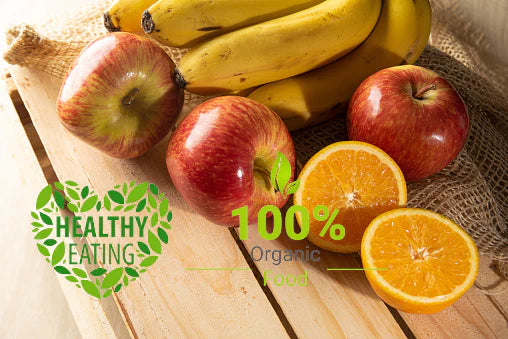Organic fruits are those cultivated without the use of synthetic pesticides, fertilizers, genetically modified organisms (GMOs), or ionizing radiation. They are grown using methods that respect the natural life cycle of plants and aim to sustain the health of soils, ecosystems, and people.
History of Organic Farming
Organic farming traces back to the early 20th century as a response to rapidly advancing agricultural technologies that many feared would harm the environment and human health. It has since evolved into a globally recognized practice with stringent certification processes.
The Importance of Organic Fruits
Nutritional Benefits
Organic fruits often contain higher levels of certain nutrients, including antioxidants, compared to their non-organic counterparts. This is attributed to the stress they undergo due to the lack of chemical aids, which can lead to an increased production of phytochemicals that enhance their nutritional profile.
Environmental Impact
Reduced pesticide use not only minimizes soil and water contamination but also helps protect wildlife and promotes biodiversity. Supporting local farmers who engage in organic farming contributes to less transportation, reducing carbon footprints and promoting sustainability.
How Organic Fruits are Grown
Organic farming practices focus on natural processes and materials to enrich soil fertility and control pests. The certification process ensures that these practices meet established organic standards, guaranteeing the authenticity of organic fruits.
Differences Between Organic and Non-Organic Fruits
Besides the evident distinction in farming methods, organic fruits often have a different appearance—they might be smaller or have minor imperfections compared to non-organic fruits. However, many consumers find the taste and nutritional benefits worth the trade-off.
Identifying Organic Fruits
Understanding labels is crucial for identifying genuine organic products. Organic fruits are usually more expensive due to the more labor-intensive agricultural practices and the certification process.
Where to Buy Organic Fruits
Organic fruits can be found in local markets, specialized stores, and through online delivery services, offering a variety of options for consumers to access fresh, organic produce.
Challenges Facing Organic Fruit Production
Despite its benefits, organic farming faces challenges such as high production costs and limited availability, which can hinder its growth and accessibility.
Future of Organic Fruits
The future looks promising with trends indicating a growing demand for organic products. Technological advancements in organic farming could further enhance sustainability and productivity.
Conclusion
Organic fruits offer numerous benefits from a health, environmental, and ethical perspective. Despite challenges, the growing demand and advancements in organic farming practices suggest a bright future for organic fruits.
FAQs
-
What makes a fruit organic? Organic fruits are grown without synthetic pesticides, fertilizers, or GMOs, following practices that enhance ecological balance.
-
Why are organic fruits more expensive? The higher cost is due to more labor-intensive farming practices and the certification process required to verify organic status.
-
How can I verify the authenticity of organic fruits? Look for certification labels from recognized organic standards organizations on the packaging or signs at markets.
-
Are organic fruits healthier than non-organic ones? Organic fruits may have higher levels of certain nutrients and antioxidants, making them a healthier choice for some consumers.
-
Can organic farming meet global food demands? While there are challenges, advancements in organic farming techniques and a growing emphasis on sustainability suggest that organic farming could play a significant role in meeting future food demands.
